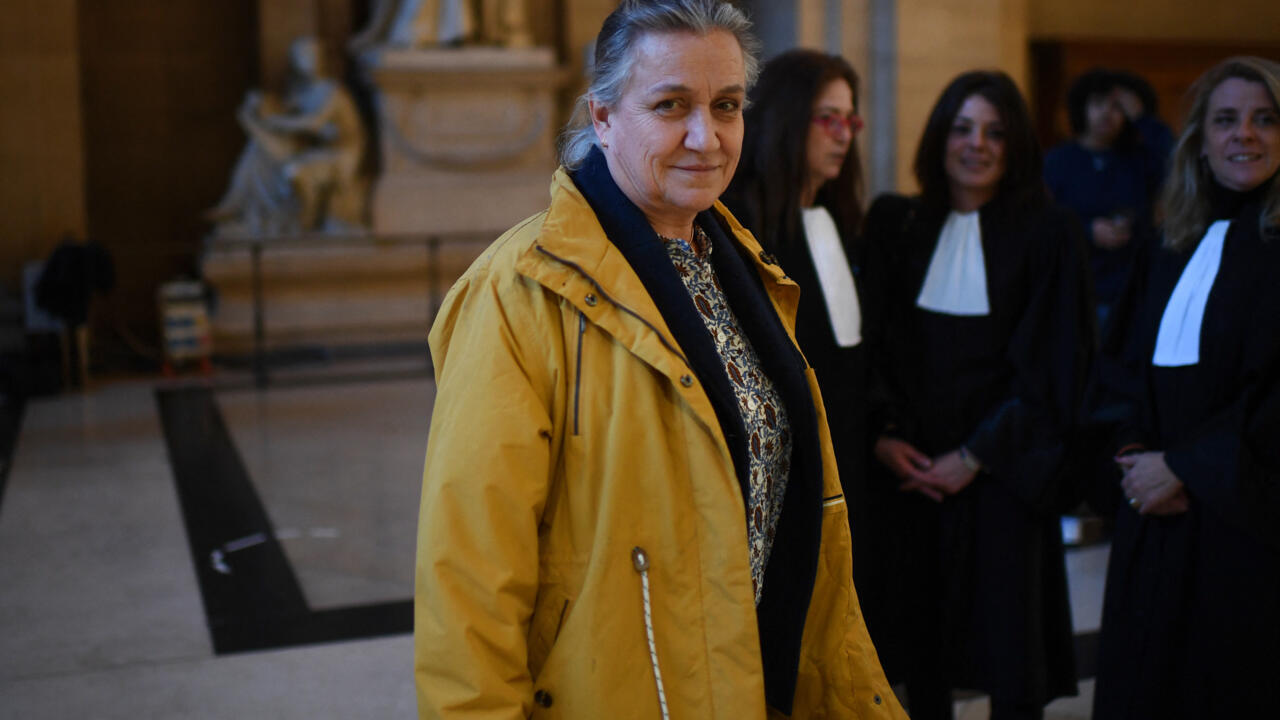Mediator trial: Irène Frachon, the doctor who revealed the scandal, demands "justice"
French pulmonologist Irene Frachon arrives at the Paris courthouse, during the appeal trial in the Mediator case on February 14, 2023. © CHRISTOPHE ARCHAMBAULT/AFP
Text by: RFI Follow
2 mins
The pulmonologist Irène Frachon testified this Tuesday, February 14 at the Paris Court of Appeal in the trial of the Pick, the name of this drug from the Servier laboratory prescribed as an appetite suppressant, responsible for the death of around 2,000 people.
Advertisement
Read more
“
I beg you to do justice
”.
At the
Mediator appeal trial
, pulmonologist Irène Frachon called on the Paris Court of Appeal on Tuesday to "
set the boundaries
" in the face of the "
cynicism
" of the Servier laboratories, "
on behalf of victims around the world
".
Camped at the helm, the Brest University Hospital doctor who revealed the extent of the Mediator health scandal retraced her fight to have this drug banned and then to help victims obtain compensation.
Marketed as an antidiabetic in 1976, but improperly prescribed as an appetite suppressant until it was banned in 2009, Mediator has had serious cardiovascular effects on thousands of patients, sometimes resulting in their death.
Since January 9, the Paris Court of Appeal has been re-judging Servier and its former general manager, two years after
the laboratory was sentenced
to a fine of 2.7 million euros for "
aggravated deception
" and "
homicides and involuntary injuries
".
The Mediator and the other drugs of the same family, it is the “
biggest scandal of the French pharmaceutical industry
” and “
it is 33 years of my professional life
”, summarizes the pulmonologist of 59 years.
►
To read also: Mediator: portrait of a whistleblower
The pulmonologist retraces her scientific questions, since her arrival as a "
young intern
" at the Béclère hospital in Clamart, near Paris, in 1990, in a department specializing in a "
very rare and extremely serious
" disease, pulmonary arterial hypertension (PAH).
His boss tells him of “
many young women who die very quickly.
We think it is linked to exposure to an appetite suppressant
, Isomeride, marketed in France by Servier since 1985 and which will finally be withdrawn from the market in 1997.
She continues with her first doubts in 2007, facing Joëlle, a patient with
unexplained “
severe PAH ”, “
under Mediator for diabetes
”.
Then his discovery that this drug is transformed in the body into norfenfluramine, a substance from the family of amphetamines with appetite suppressant properties, like Isomeride.
Then comes
the "headquarters of the agency
" of the drug to "
obtain a suspension decision
", which arrives at the end of 2009, but is not followed by any communication vis-à-vis patients and doctors.
Irène Frachon describes decades of “
frenzied denial of the dangerousness of a product
” on the part of Servier.
She doesn't have words harsh enough for the laboratory: an "
extraordinarily violent and delinquent firm
", which uses "
procedural vindictiveness to muzzle speech
".
"
The lessons learned are almost nil in terms of the functioning of institutions, the Servier laboratory, the question of conflicts of interest
", she believes, deploring that this situation fuels "
the distrust and conspiracy of our fellow citizens
" .
.
(
With
AFP)
Newsletter
Receive all the international news directly in your mailbox
I subscribe
Follow all the international news by downloading the RFI application
France
Justice
Health and medicine

